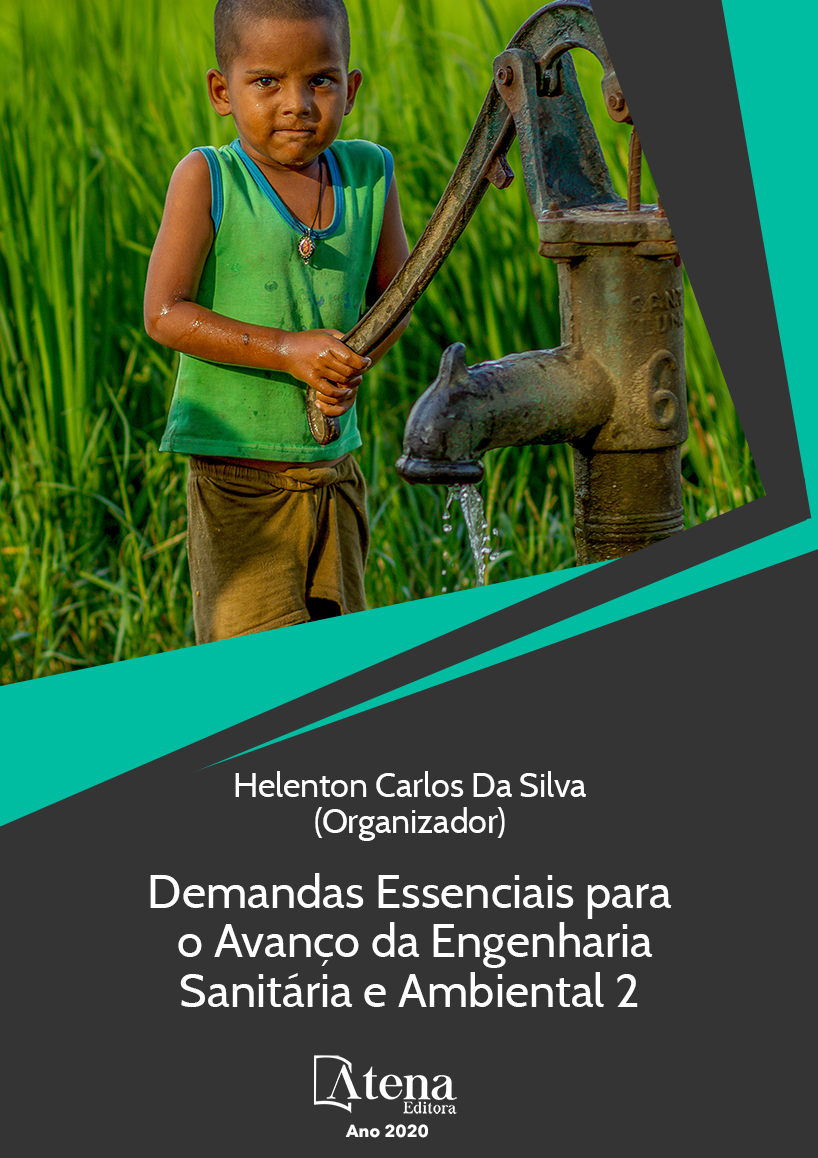
FITORREMEDIAÇÃO UTILIZANDO MACRÓFITAS AQUÁTICAS NO TRATAMENTO DE EFLUENTES DE ESGOTO DOMÉSTICO
AAs tecnologias para a remoção dos
constituintes nutricionais do esgoto sanitário
representam normalmente altos custos de
implementação e operação, provocando a busca
por alternativas que apresentem melhor custobenefício,
como a aplicação da fitorremediação
utilizando macrófitas aquáticas, sendo está
investigação o objetivo do presente estudo. Para
o desenvolvimento da pesquisa foram dispostas
macrófitas da espécie Eichhornia crassipes, em
um sistema hidropônico contendo dois tipos de
tratamento, sendo eles, efluente tratado de uma
estação de tratamento de esgoto doméstico e
água de abastecimento usada como prova
branca, onde foram mensurados o crescimento
da espécie no sistema, por testes estatísticos
de Regressão e ANOVA além da influência das
condições ambientais de temperatura do ar,
umidade relativa do ar e temperatura superficial foliar, termográficas. Assim como, as
análises em laboratório das remoções dos seguintes nutrientes: fósforo total, fosfato,
Nitrogênio amoniacal, nitrato, nitrito e DQO, e suas respectivas eficiências de remoção.
Os resultados obtidos no experimento de remoção de nutrientes em duas amostragens
foram de: Fósforo Total 88 e 85%; Fosfato 81 e 86%, Nitrogênio amoniacal total 91 e
97%, houve aumento de Nitrato e Nitrito e DQO nas concentrações. A fitorremediação
experimental com macrófitas aquáticas da Amazônia apresentou-se como uma
eficiente alternativa para a implementação de unidades complementares em sistemas
de tratamento de efluentes para as condições ambientais climáticas da região e
alternativa de baixo custo na remoção de potenciais poluente de corpos hídricos.
FITORREMEDIAÇÃO UTILIZANDO MACRÓFITAS AQUÁTICAS NO TRATAMENTO DE EFLUENTES DE ESGOTO DOMÉSTICO
-
DOI: 10.22533/at.ed.47920210121
-
Palavras-chave: Recursos Hídricos; Eichhornia crassipes; Remoção de nutrientes.
-
Keywords: Water resources; Eichhornia crassipes; Nutrient Removal
-
Abstract:
Technologies for the removal of nutritional components from sanitary
sewage usually represent high costs of implementation and operation, leading to the
search for more cost-effective alternatives, such as the application of phytoremediation
using aquatic macrophytes, and the aim of this study is being investigated. For the
development of the research, macrophytes of the species Eichhornia crassipes were
arranged in a hydroponic system containing two types of treatment: effluent treated from
a domestic sewage treatment plant and water supply as a white test, where the growth
was measured. of the species in the system by regression and ANOVA statistical tests
and the influence of environmental conditions of air temperature, relative humidity and
leaf surface temperature, thermographic. As well as laboratory analysis of the removal
of the following nutrients: total phosphorus, phosphate, ammonia nitrogen, nitrate, nitrite
and COD, and their respective removal efficiencies. The results obtained in the nutrient
removal experiment in two samples were: Total Phosphorus 88 and 85%; Phosphate
81 and 86%, total ammonia nitrogen 91 and 97%, there was an increase of nitrate
and nitrite and COD in concentrations. Experimental phytoremediation with aquatic
macrophytes from the Amazon was an efficient alternative for the implementation
of complementary units in effluent treatment systems for the climatic environmental
conditions of the region and a low cost alternative for the removal of potential pollutants
from water bodies.
-
Número de páginas: 12
- Jaelbe Lemos de Castro
- Dayhane Mayara Santos Nogueira
- Luciana Castro Carvalho de Azevedo
- Patrícia Santos Silva
- Júlia de Souza Carvalho
- Timóteo Silva Ferreira
- José Reinaldo Pacheco Peleja
- Nathalia Costa Scherer
- Lucieta Guerreiro Martorano
- Israel Nunes Henrique


